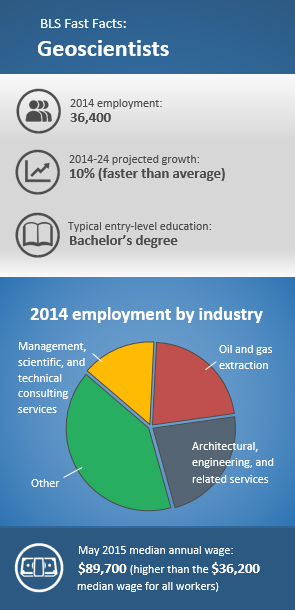All Categories
Featured
Table of Contents
Integrated Geophysical Surveys For The Safety in Mullaloo Oz 2023
Connect with MBA programs looking for candidates like you. Research study. Link with master's programs around the country to get an edge over the competition.

A geophysicist studies various aspects of the earth. View a video to discover what a geophysicist: Geophysicists need to make a minimum of a bachelor's degree; however, this is for an entry-level position.
Advanced degrees require more particular studies in the specialty of choice. Job potential customers are higher if you have a strong background in computer system science or innovation.
Archaeological Geophysics And Geochemistry Planning A Geophysical Survey: Environmental & Physical ... in Greenwood Aus 2021
Access to these opportunities might be limited depending on where you live; nevertheless, internships or summer season programs with geophysical companies, university geophysics department, or the U.S. Geological Survey can be alternatives. You can discover a list of a list of opportunities on the United States Geological Survey (USGS) websites' Pathway Programs tab (opens in another link).
If you have yet to finish high school, taking as numerous science and mathematics classes as possible would be a plus. Geophysicists likewise work with computers while investigating, so computer system courses can likewise be practical, as pointed out previously in this short article. Many geophysicists specialize in an area of geophysics. Therefore, the task description would alter pending on the specialized.
A geophysicist's duties can consist of measuring, tracking, and documenting data from different physical homes in the world. They likewise assess and exam information received. Geophysicists frequently have to take a trip worldwide to take a look at geological events that have actually taken place or may have been forecasted. Geophysics is a research-based career field, therefore one must have the ability to assume, problem-solve, and question or obstacle formerly held presumptions from their collected data.
Frequently Asked Questions in Casaurina Australia 2021
Jay Wellik, a geophysicist, research studies volcanos. Geophysicists usually work full-time hours; nevertheless, they typically work irregular hours, as discussed formerly.

You can discover additional information about Geophysicists together with additional instructional materials on the U.S. Geological Survey site (links open in a new window). Laura Stern, of the U.S. Geological Study at the Gas Hydrates Lab in Menlo Park, California: We make a variety of different hydrates in the laboratory.
We also make co2 hydrate, ethane hydrate, gas, a number of different structures. Liquid nitrogen is very cold. It has to do with 100 degrees colder than the temperature level at which these hydrate samples would dissociate, when they would disintegrate to ice plus gas on the tabletop. In here we have a little piece of methane hydrate.
Geophysicist Salary in Gooseberry Hill Aus 2020
They look like snow, it looks like compacted snow but honestly, it does contain gas inside. It's reverting to ice plus gas and then as the ice would melt as it continues to warm, it will end up being water plus gas.
My name is Steve Kirby, I'm a Geophysicist here at the U.S. Geological Survey in Menlo Park. I work with Laura Stern who is also a Geophysicist in this lab that adheres towards the investigation of planetary ices and gas hydrates. Gas hydrates in nature happen in really remote places and they are really complex with the interactions and conditions that they form under and samples that are brought up are under some sort of alternation or decomposition.
This is an unusual lab and there are just a handful of them worldwide and we are very fortunate to be here at the Geological Survey and to have the opportunity of working on them. Bureau of Labor Statistics, U.S. Department of Labor, Occupational Outlook Handbook, Geoscientists. National Center for O * Web Advancement.
Geophysicist Job Description in Huntingdale Western Australia 2020
00. O * Web On, Line. This video was produced by the government for the U.S. Geological Study. The USGS Gas Hydrates Lab is moneyed by the Department of Energy and the USGS Gas Hydrates Job.
Latest Posts
Geophysical Surveys: Definition & Methods in Forrestdale Oz 2020
Geophysics in Spearwood Australia 2022
Geophysical Survey in Kinross Oz 2022